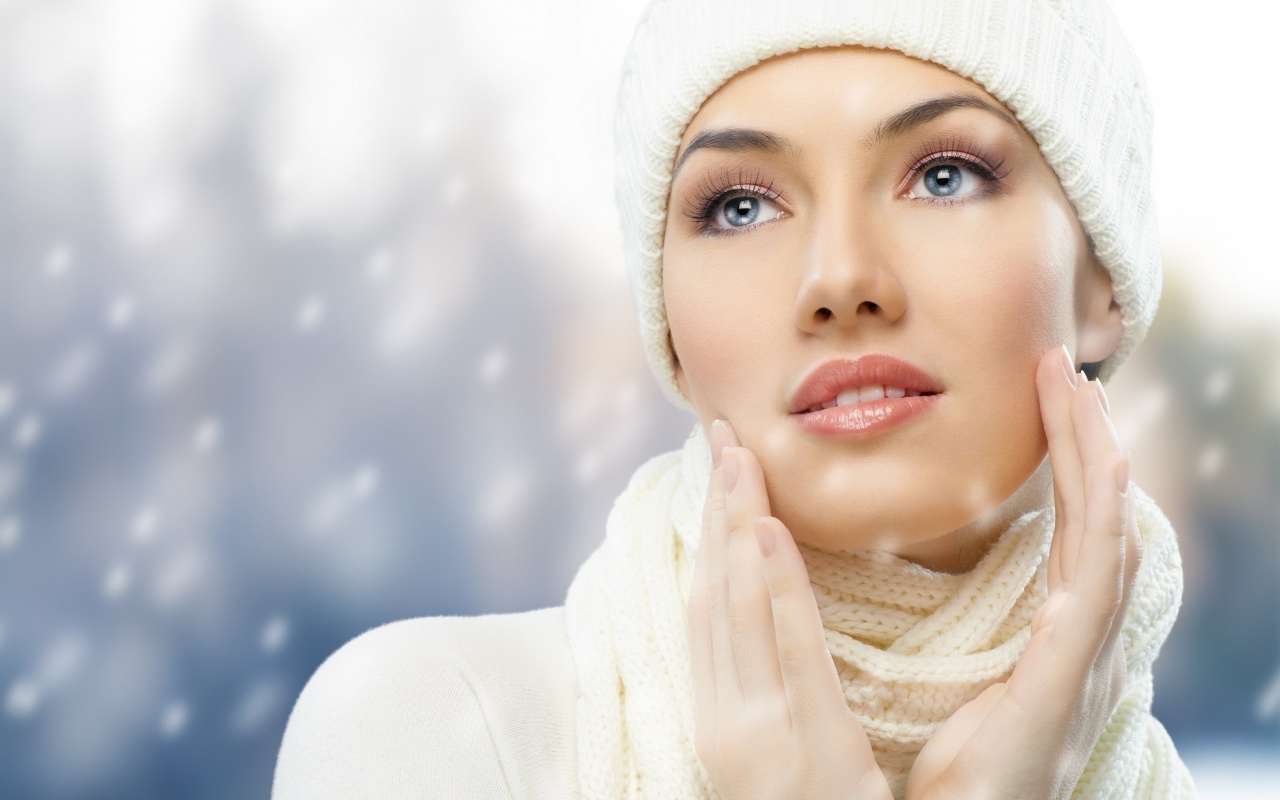CT- scan and MRI centers in Kathmandu
6 November, 2020CT- scan and MRI centers in Kathmandu...
Read More
Skin is the largest part of our body. It's skin what people see when they first look upon us. So, care of skin is important part of healthy and well being lifestyle. Here we will discuss the ways of keeping skin well during the winter days.
The uppermost layers of your skin are called the stratum corneum, and they're kind of like your skin's shield, protecting what's inside, while keeping out bad elements from the environment. This stratum corneum is made up of about 10-15 micrometers of dead-cell skin. Scientific studies show these outermost layers play an important part in keeping natural moisture inside the skin.
But,in winter season, when humidity drops; dry and low temperatures air can suck the moisture out of skin cells, causing dry, itchy skin. In medical term, we call this as "Xerosis of skin".

Image source: newsd.in
To protect against seasonally dry, flaky skin here are a few suggestions:
Sometimes when skin is very dry, it can be helped by foods or supplements that contain omega-3 or omega-6 fatty acids, such as fish oil and flaxseed oil. And, when it’s cold outside, we prefer not drinking much water. But this is unhealthy for your skin, specially when it is losing moisture in cold and dry weather. Drinking certain amount of water at regular intervals can be more beneficial than drinking a lot of water at a single time.
Indulging in warming teas such as natural ginger and lemon is a wonderful way to keep hydrated in winter - you will feel healthy, hydrated and cozy at the same time.
It may be tempting to take a long, warm steamy shower, but your skin will be much better when served with 5 to 10 minutes lukewarm shower (or bath), as the American Association of Dermatology suggests.
You should also avoid using excessively hot water when washing your hands ( if the water causes your skin to turn red, it’s too hot).
According to Centers for Diseases control & Prevention(CDC); washing your hands in cooler water appears to be as effective at removing germs as warm water and is less irritating to skin.
And if you're using a restroom air hand-dryer, use it just until your hands are damp rather than perfectly dry
The wrong soap can worsen itchy, dry skin. For instance, regular bar soaps may contain irritating ingredients and fragrances. Instead, wash with a fragrance-free, moisturizing cleanser or gel. And do look for products specifically labeled “fragrance-free,” because "unscented" products may actually contain fragrances. (Fragrances can trigger allergies, migraines, and even asthma. Even if you don't suffer from any of these conditions, they can still pose potentially serious health risks when they come in contact with your skin. )
You can also prevent winter skin problems by using less soap overall, so limit your lathering to necessary areas, such as your hands, armpits, genitals, and feet.
Many cold-weather fabrics can aggravate dry winter skin. Rough and sticky clothes directly touching your skin can cause dry skin to get irritated and itchy, also adding rashes. Instead, wear light layers made from soft, breathable materials directly against your skin, and then pull on your heavier, warmer sweaters. Be sure to protect your hands from cold winter air with gloves or mittens, remembering to choose a pair that won’t irritate your skin. If you prefer wool gloves, put on cotton or silk glove liners first.
Sometimes a layer of dead cells or dust or over use of moisturizer(cream, losion) is formed on our outer skin; and we often forget to help the skin slough off such layer in the winter, particularly on our hands. Yet moisture cannot get in if the dead cells are too plentiful. Find an exfoliating mask and use it on your face and your hands, as well as gently on your lips, then follow immediately with moisture to truly see a smoother difference. Exfoliating body washes are also helpful in the winter months to protect your skin.
Exfoliating your skin once a week is fine – this helps in boosting skin regeneration and better product absorption. Also, you should exfoliate depending on your skin type. If you have very dry skin, exfoliate your skin lightly. If you have combination and oily skin, once a week is fine.
But, remember over exfoliating can again be a threat to your skin.

Image source: Ndtv.com
Specially, if you have skin problems like eczema, dermatitis, or psoriasis; you have to avoid allergens and irritants that may trigger a flare up. Winter skin is more fragile or sensitive, so avoid irritating fabrics (like wool) and chemical-laden detergents, and use mild cleansers and moisturizers designed for sensitive skin. In addition, glutathione is considered the “master anti-oxidant” and helps your body detox. Obviously, using a lot of skin-products is not a healthy habbit. It basically means- choose your skin care products wisely, and, of course, if you don't have proper idea about it, then you may consult a dermatologist or a beauty expert.
During the winter months, choose cream-based cleansers, and apply toners and astringents sparingly, if at all. Many astringents contain alcohol, which can further dry your skin. When your skin is dry and itchy, then stop using products that contain alcohol and fragrances in order to help skin retain its natural oils. At night, use a richer moisturizer on your face.
And don’t forget your lips. Applying a moisturizing balm (such as petroleum jelly or another ointment) can help heal dry, cracked lips and keep them from getting chapped. If, however, your lip product causes a stinging or tingling sensation, try switching to a different product.
Definately, it’s hard to leave the warmth and coziness of the blanket behind and make an exercise on a chilly winter morning. But surely, it is awesome for your glowing skin. Exercise will pump up your heart rate, which in turn, pumps more blood to your organs and skin. During the winter, the oil and sweat glands in your body and the blood vessels constrict a bit. This makes it hard for your skin to keep itself healthy and glowing naturally, and that’s why it needs your help.
Likewise, proper rest is also required for a beautiful skin. Stress, less or bad sleep can increase the number of dead cells, irritating your skin. Thus, make sure you rest properly and exersice likewise.
Low temperature and chilly winds can result in chapped skin for both you and your baby. To combat the cold, you may be tempted to make your house super toasty with a turbo-blast of heat, but overheated air can dry out skin even more and faster. Keep the house confined but cool enough that your child would want to bundle up a bit for sleep. In other words, do not heat up your room or house in such a way that it feels like summer.
You must have a healthy routine for a pleasant skin. Here’s a very basic and simple skin care routine that anyone can follow to keep their skin happy during the winter:
You should consult to a dermatologist if you feel unreasonable redness, itching, rough or scaly patches, bumps or blisters, flaking, and inflammation on any part of your skin.
Aslo, following skin problems require doctor's advice to cope up with.
Dermatitis: This refers to any inflammation of the skin
Rosacea: It is a bacterial infection that causes rashes and small, red bumps on the skin.
Cold urticaria: This rare skin condition causes swollen, itchy bumps called hives to form after exposure to the cold.
Psoriasis: Cold, dry weather can trigger psoriasis flares. Other triggers include stress, smoking, and certain infections.
Natural oils contain nutrients and minerals that can help soothe and replenish irritated skin. Here are some natural oils ;
Coconut oil compounds, such as lanolin and lauric acids, can improve the skin's barrier function and promote healing.
Safflower oil contains large amounts of linoleic acid which has anti-inflammatory effects, making it ideal for soothing irritated skin.
Avocado oil contains vitamins C, D, and E, making it an excellent nourishing oil for dry or damaged skin.
Olive oil has anti-inflammatory properties, but it promotes water loss in the skin, which reduces the skin's barrier function. People who have dermatitis or who struggle with dry skin should avoid using olive oil.
Leave a comment